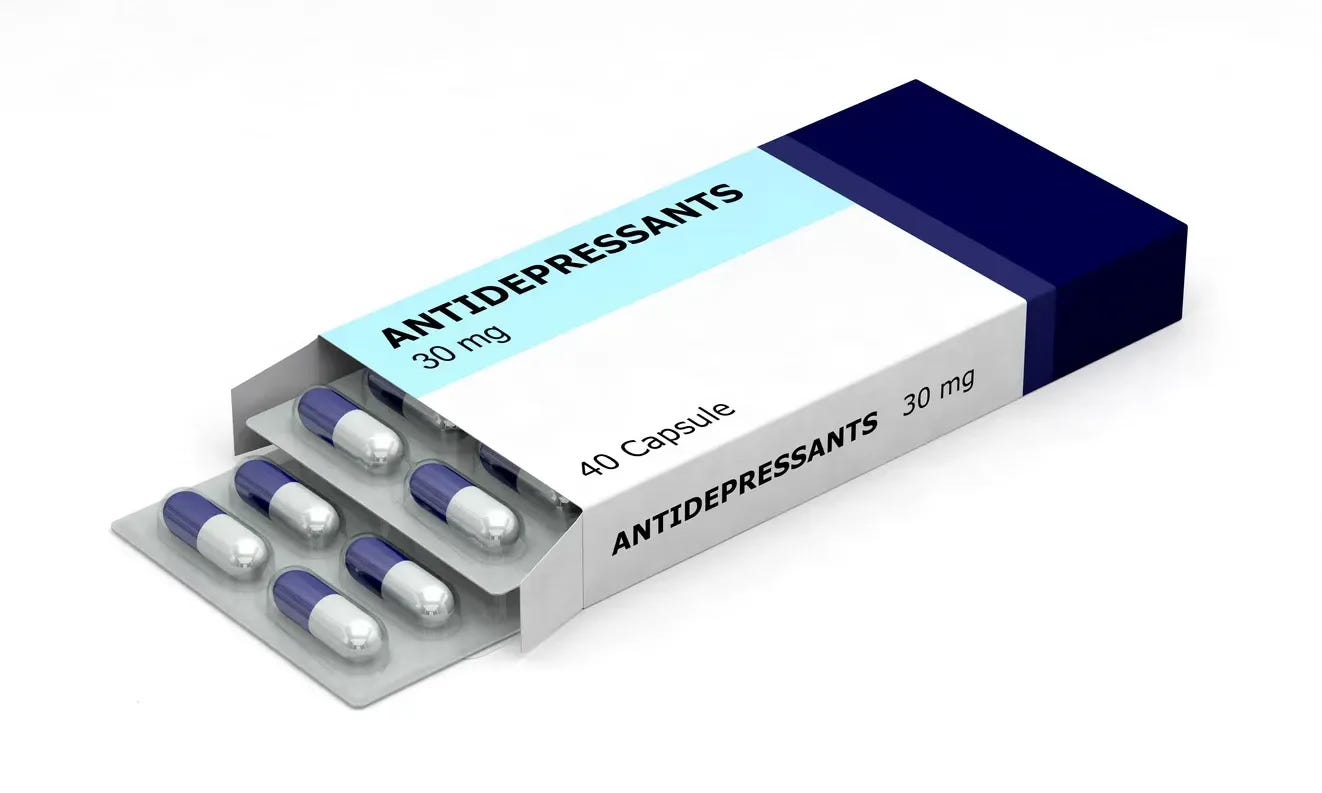The Dangerous SSRI Experiment on Developing Brains
A 3 part series investigating the dangers of SSRI's for adolescents
Dear subscribers,
I want to bring your attention to an important three-part investigation that examines the widespread use of Selective Serotonin Reuptake Inhibitors (SSRIs) in adolescents and the potential consequences that have remained largely unexplored in mainstream discussions.
I'm excited to share with you a comprehensive series I've authored that was published on the Foundation Against Intolerance & Racism (FAIR) Substack. This investigation challenges the current paradigm of adolescent mental health treatment and digs deep into questions that affect millions of families yet remain underexamined in our medical establishment.
The Series at a Glance
Part 1: The Science Behind SSRIs: What We're Not Being Told
The first installment examines how widespread SSRI prescribing for adolescents rests on questionable science, including the now-debunked chemical imbalance theory of depression and a flawed FDA approval process. It questions whether the benefits truly outweigh the risks when it comes to our children's developing brains.
Part 2: Are We Chemically Reshaping Adolescent Identity?
The second part explores a troubling correlation: as SSRI prescriptions for teenagers have skyrocketed, so too have gender dysphoria diagnoses. The article examines how these drugs might be disrupting normal developmental processes during the critical period of adolescence when identities are forming. Most concerning is the evidence of Post-SSRI Sexual Dysfunction (PSSD), which can permanently alter sexual function even after medication discontinuation.
Part 3: Reclaiming Adolescent Resilience—Beyond the Chemical Solution
The final installment offers practical alternatives to medication, focusing on evidence-based approaches that support adolescent mental health without pharmaceutical intervention. It examines how proper sleep, nutrition, physical activity, limited screen time, and appropriate therapeutic approaches can address the root causes of adolescent distress rather than simply masking symptoms.
Why This Matters
As parents, educators, healthcare providers, or concerned citizens, we owe it to the next generation to question medical interventions that may have far-reaching consequences. This series raises important questions about how we're addressing adolescent mental health and whether our current approach might be causing more harm than good.
The investigation doesn't shy away from uncomfortable truths, including how:
Normal adolescent experiences are increasingly pathologized and medicated
SSRIs can cause emotional blunting during a critical period of identity development
Many adolescent struggles resolve naturally with time and appropriate support
Environmental factors like sleep, nutrition, and screen time dramatically impact mental health
Hormonal contraceptives may be an overlooked driver of adolescent mood disorders
A Call for Scientific Inquiry and Informed Consent
This series isn't about dismissing the real suffering many adolescents experience. Rather, it's a call for more rigorous scientific inquiry, true informed consent, and a more holistic approach to supporting young people through this challenging developmental stage.
I encourage you to read the complete series and share it with others who might benefit from this information. The well-being of our young people depends on our willingness to ask difficult questions and challenge prevailing narratives when the evidence suggests we should.
What are your thoughts on this topic? Have you or someone you know had experiences with SSRIs during adolescence? I welcome your perspectives in the comments below.
With great concern for the next generation
Note: If you or someone you know is currently taking SSRIs, do not discontinue medication without proper medical supervision. Withdrawal effects can be serious and require careful management.




Thank you for your work!